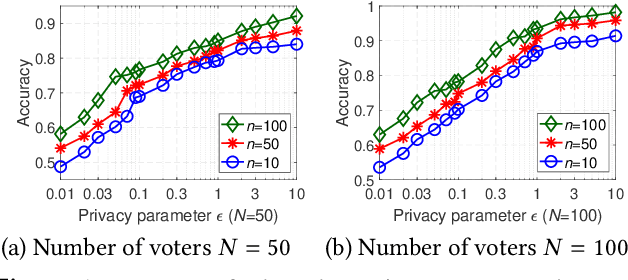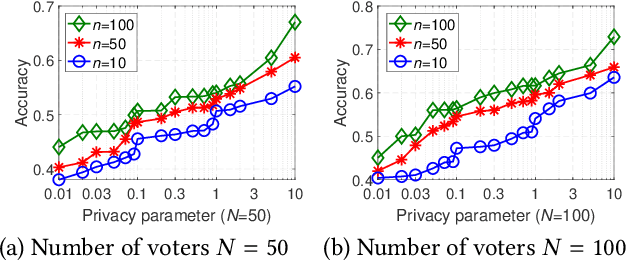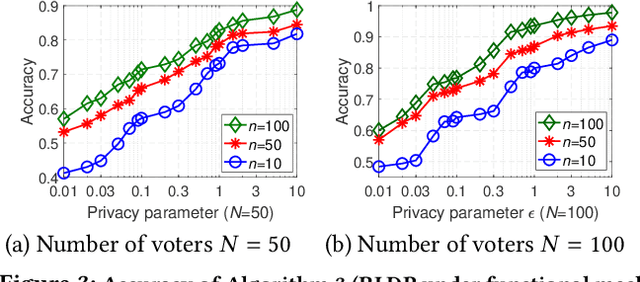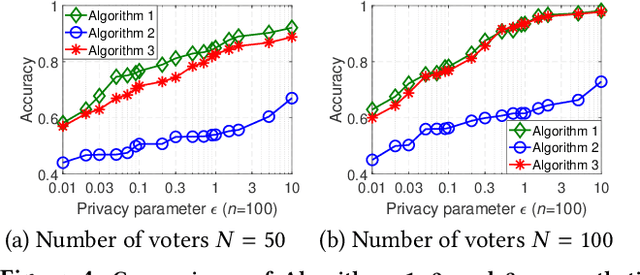Privacy-preserving Crowd-guided AI Decision-making in Ethical Dilemmas
Paper and Code
Jun 04, 2019



With the rapid development of artificial intelligence (AI), ethical issues surrounding AI have attracted increasing attention. In particular, autonomous vehicles may face moral dilemmas in accident scenarios, such as staying the course resulting in hurting pedestrians or swerving leading to hurting passengers. To investigate such ethical dilemmas, recent studies have adopted preference aggregation, in which each voter expresses her/his preferences over decisions for the possible ethical dilemma scenarios, and a centralized system aggregates these preferences to obtain the winning decision. Although a useful methodology for building ethical AI systems, such an approach can potentially violate the privacy of voters since moral preferences are sensitive information and their disclosure can be exploited by malicious parties. In this paper, we report a first-of-its-kind privacy-preserving crowd-guided AI decision-making approach in ethical dilemmas. We adopt the notion of differential privacy to quantify privacy and consider four granularities of privacy protection by taking voter-/record-level privacy protection and centralized/distributed perturbation into account, resulting in four approaches VLCP, RLCP, VLDP, and RLDP. Moreover, we propose different algorithms to achieve these privacy protection granularities, while retaining the accuracy of the learned moral preference model. Specifically, VLCP and RLCP are implemented with the data aggregator setting a universal privacy parameter and perturbing the averaged moral preference to protect the privacy of voters' data. VLDP and RLDP are implemented in such a way that each voter perturbs her/his local moral preference with a personalized privacy parameter. Extensive experiments on both synthetic and real data demonstrate that the proposed approach can achieve high accuracy of preference aggregation while protecting individual voter's privacy.
 Add to Chrome
Add to Chrome Add to Firefox
Add to Firefox Add to Edge
Add to Edge